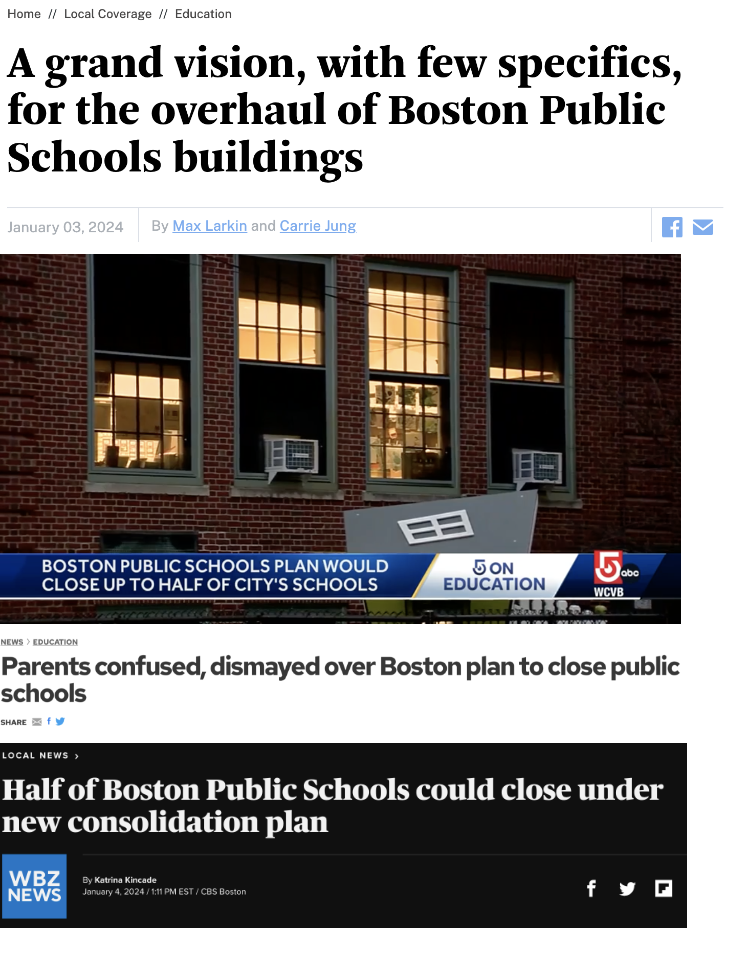FYI from BSF, 1.5.24
It has been some time since Boston schools was the super news of the day, but that is how 2024 was rung in.
A day later, a letter surfaced that assured school leaders that despite the math seen below, no, half of the school buildings were not slated to be closed.
Why all the back-and-forth?
19 months after the city first announced a “Green New Deal for Boston Public Schools,” a master facilities plan had to be submitted to the state, a requirement of the agreement to stave off state receivership.
On or around December 31st, the city submitted this overview and a more detailed analysis.
Most importantly, these documents do acknowledge the core issues: we have too many school buildings, and most of them are old. The path ahead? Less school buildings, with more students and more amenities. And how do you do that in a way that is clear and equitable?
There is an immense amount of process data, like this recap of surveys and community sessions.
There are descriptions and diagrams of schools in the preferred PK-6 or 7-12 model, like this.
There are utilization rates of schools, and handy maps like this.
There is a display of how much more money is being spent, like this.
There is an initial set of potential projects, which range widely in their readiness (e.g., Boston Arts Academy is already done, a potential site isn't named for the PK-6 Roxbury school).
There is a rubric, with a nice explainer video, translated into multiple languages.
There is an updated website and more public engagement to come.
What is not there? An enrollment projection. An itemized, multi-year budget. A timeline. A list of projects beyond the already public cohort.
This wasn’t a surprise. Mayor Wu shared in a recent interview with WBUR that level of specificity was “impossible,” rather describing the document as a “rubric” and “roadmap” for ongoing decisions.
Building projects will be proposed annually in the spring, as a part of the city’s five-year rolling capital budget. With the exception of the projects already underway, closures, mergers, and new buildings won’t be announced for another several months, and then again for a year.
We don’t know what the future holds for 100+ school communities.
But we will be talking about it every year.
notes in the margin
The shortest Boston School Committee meeting of the year is always its first. Wednesday’s meeting featured an expeditious approval of the calendar, Chair, and Vice Chair. Materials and video here.
What is next for Boston’s English learners?
The potential ballot question to eliminate the MCAS graduation requirement officially moved to the Legislature.
The Holyoke receiver wants to return to local control.
As school districts look to trim staff with ESSER waning, they should mind the efficacy of good guidance counseling.
New York is the latest state to go all-in on science of reading.
What education issues are likely to bubble up in 2024? School integration may also be revived.
A local college that educates ~0.03% of American undergraduates continued to get a lot of attention this week.








